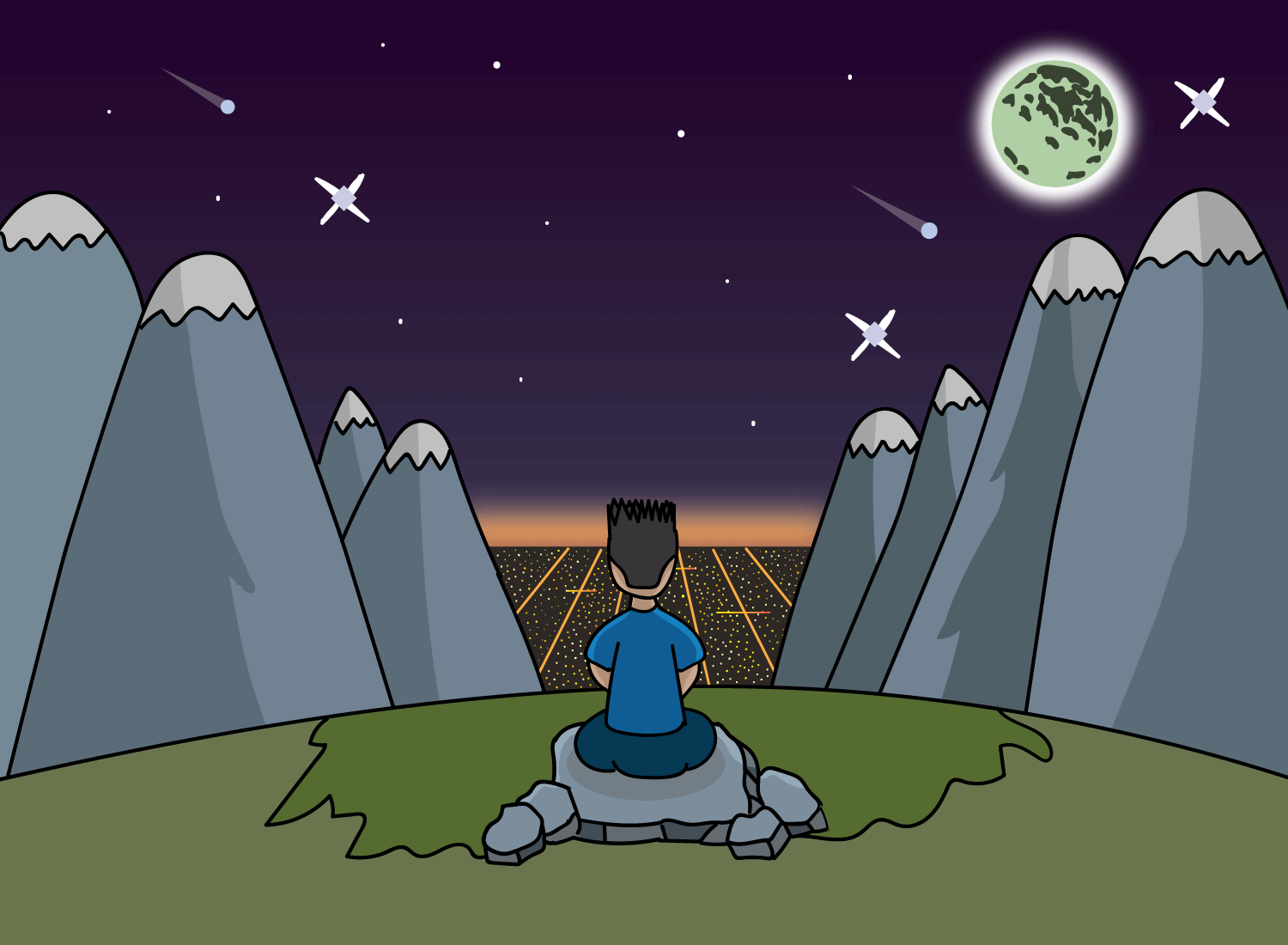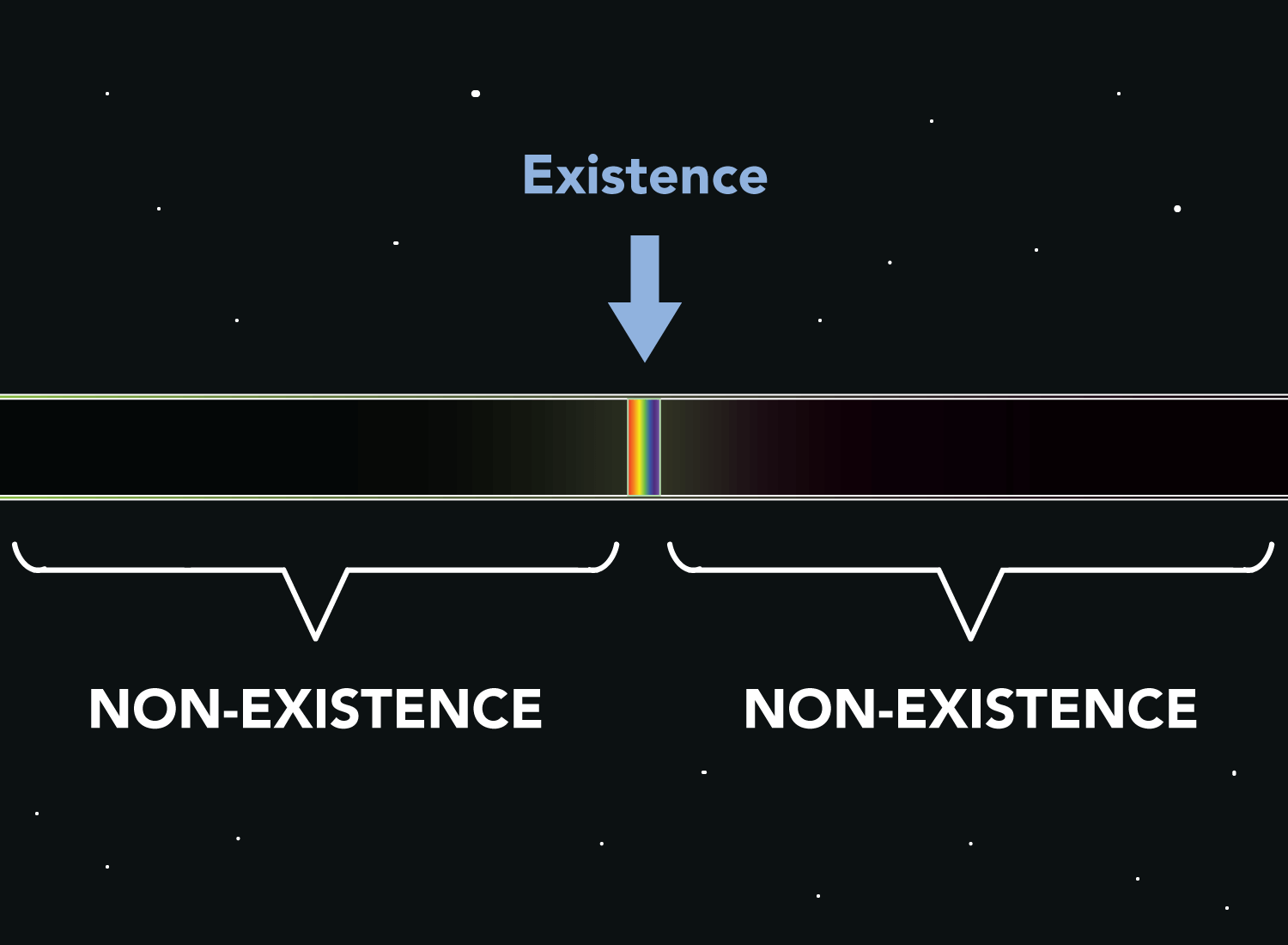The Dream That Is Existence
The strangest part of a dream is not the dream itself, but the fact that you don’t recognize its strangeness.
The other night, I dreamt that I was hanging out with a comedian that I only know of through podcasts and videos. But in this dream, we were best friends, sharing a dynamic that felt as if we’ve known each other since childhood. Not only was he cracking me up, I was throwing out jokes like it was nobody’s business. We were having a fantastic time.
But upon waking up, the illusion was broken as the intellect took hold once again. My rational faculties wouldn’t dare question the validity of the dream; of course it didn’t actually happen. I don’t even know the guy, so there was no way we’d be hanging out on a couch together to begin with.
But why couldn’t I question this as the dream was in motion? When the movie was playing, why couldn’t I recognize that I was merely a viewer, and not the leading role?
There are lucid dreamers that are able to import their rationality into the realm of fantasy, but I’m not one of them. When I’m dreaming, there is no division between what is bewildering and what is real. Everything is truth, and the thought of doubting it is incapable of forming.
For most of us, what categorizes a dream from waking life is this inability to question reality. To be awake is to be a rational animal, and to be a rational animal means you question what’s in front of you. If you can’t question things, there is no curiosity, and without curiosity, there is no consciousness.
So with that logic, we might be compelled to dismiss dreams as nonsense. As a bug that somehow tricked evolution into shipping it as a feature. As a silly illusion that happens every now and then that you should mostly ignore.
But of course, quite the opposite has happened.
Human history has been kind to dreams, and there’s no sign of that trend stopping. Everyone from indigenous chieftains to modern psychologists place immense importance on what we see when we’re asleep. The belief is that your dreams provide a “window into the unconscious,” which may reveal more about who you are than the conscious mind can ever communicate.
Trying to explain the unconscious will require far more words than this reflection can hold, but at its core, I believe it’s this:
The unconscious is when the intellect no longer has power over the mind.
The intellect is primarily an organizational mechanism. It tries to make sense of things that appear patternless and random. When we encounter something strange, the intellect goes to work by forming a story to make it comprehensible. Biology, philosophy, mathematics, finance, economics. These are all products of the intellect.
Needless to say, the intellect has given us some awesome things. It’s extended average lifespans, advanced the frontiers of technology, and allowed us to be more connected than ever before.
But it’s unclear if the growth of the intellect has made us any happier.
Perhaps the greatest drawback of the intellect is that it organizes societies into games. Causality reigns supreme in the rational mind, and games are nothing more than a series of actions and consequences. If you do that, then this happens. If you follow that person, then you’ll get this reward. Algorithms are not limited to software; they are embedded deep into our minds, and rationality is the principal programmer.
The unconscious is so valuable because it represents a realm free from algorithms and conditioning. Games no longer make sense when there are no rules to follow, no script to stick to. And when there is no game to play, you are not bound by the expectations of others, and so your authentic self is given a chance to emerge.
That doesn’t mean that it’s all good though. Any person who’s had a nightmare can attest to how scary it is to occupy a world where reality is not questioned. But when you have a dream that allows you to seamlessly flow through a fantastical realm, it’s disappointing when you wake up and you have to tell yourself that it wasn’t real.
I wonder though. Is there really a boundary between the contents of the dream, and the contents of reality? Do there have to be two versions of yourself: one that’s asleep without questioning anything, and one that’s awake that questions it all?
This reminds me of an illustration I drew in a post where Life and Death were arguing with one another in a courthouse (you see, my thoughts really do take me to dreamlike places). It’s a drawing Death presents to show that existence really is a short blip on the timeline of things, and that if there’s one thing we should be used to, it’s non-existence:
When looking at this, it appears to me that existence itself is a dream. For this ridiculously short window of time, we don’t question that we’re here, despite the fact that our default state is utter non-existence. We just accept that we’re a part of this material world, and that everyone else around us is too. If anything, we’re just grateful to experience it.
In the same way that a dream is but a blip in the context of your day, your life is but a blip in the context of the universe. Everyone you see will one day be gone, just like that time I spent with that famous comedian is now an echo of an imagined past. Dreams are temporary, but life even more so.
Our days are filled with big moves to make, important decisions to weigh. The intellect reigns supreme as we try to solidify our ranking in the game and assess our place within it. Life feels like one long individual ride, so we make calculated actions to ensure that we come out ahead of everyone else.
But if we recognize existence as this collective, short-lived dream we get to occupy together, then perhaps we’ll realize that the most rational conclusion comes down to just one imperative:
To be kind.
_______________




